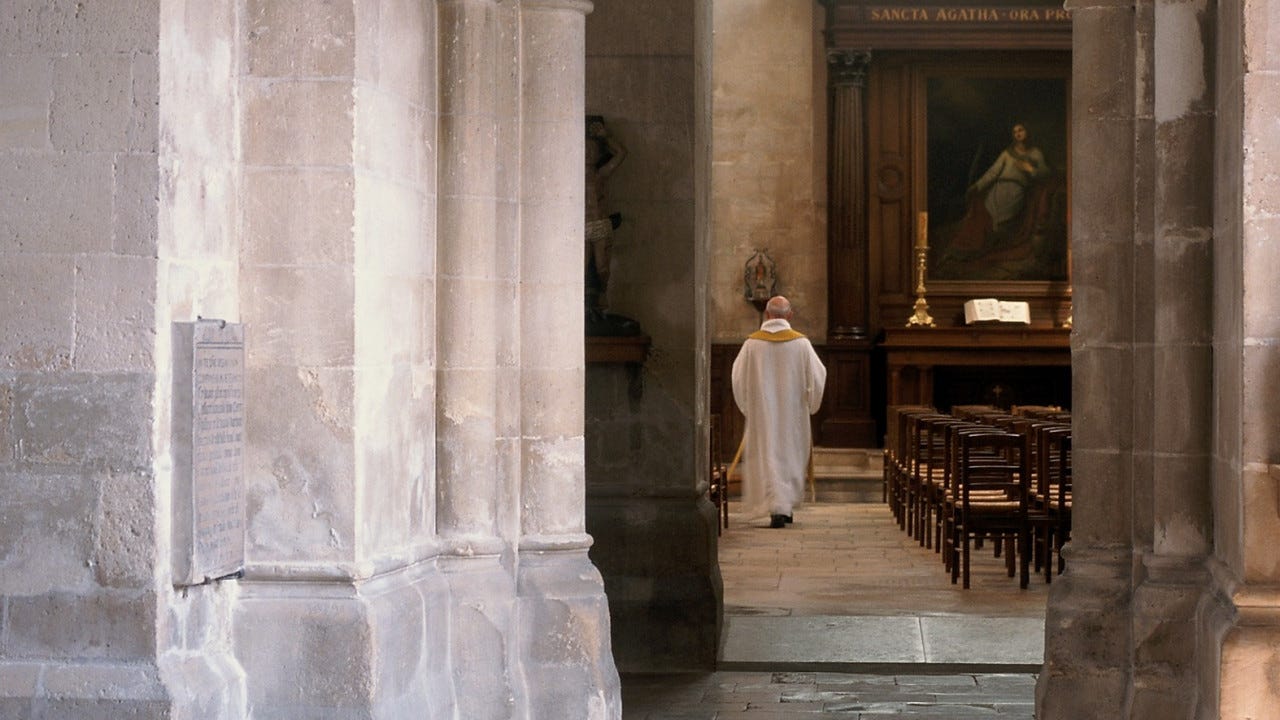
As a child growing up in the Catholic Church, the Sacrament of Reconciliation — commonly called Confession — terrified me. Just the sight of the carved wooden confessional on Sundays was enough to make me sweat.Thanks to years of after-school catechism classes and innate Catholic guilt, I saw my life as a minefield of potential sins. The stomachaches I had feigned to get out of going to church, the forbidden cartoons I watched past my bedtime, the coveted stuffed animals I had stolen from my brother’s room… all Commandment-breaking sins that were a one-way ticket to Hell. Confession was my salvation from this terrible fate, but the thought of entering the small, enclosed confessional booth and spilling my sins to our priest, and therefore God, was horrifying.
When I was offered the chance to review Living Lucid Creative’s virtual immersive experience The Confessional, which they describe as a satire/comedy with mature content, it seemed, at first glance, like an interesting and potentially humorous way to explore my Catholic upbringing and my childhood fear of Reconciliation. I was directed to choose between the three priests of the fictional St. Alphonsus Catholic Church: Father Fabio “Fabulous” Giovanni, Father Killian O’Malley, and Father Raymond Edmond.
Each priest came with a stock photo, a tagline, and a short backstory. The first I clicked on was Father Giovanni, described as a “passionate confessional healer with sexual undertones.” My stomach sank as I read the fictional backstory of a man who “grew up making high heeled shoes for transvestites… growing up next too [sic] the whorehouse….” The company goes on to describe a man with a sexual interest in animals, an expensive condom habit, and no boundaries between himself and his parishioners. Father Giovanni’s backstory was littered with typos, juvenile jokes, offensive stereotypes, and incorrect information about Catholicism. The other two priests’ backstories were not much better. Father O’Malley was a potato-loving, Guinness-drinking alcoholic from Ireland and Father Edmond was a narcissistic stoner whose description said he would ignore me in favor of his book. I didn’t see the point of the latter — if I wanted to be ignored by a pretentious stoner I could do that for free in any Brooklyn coffee shop — and I was deeply uncomfortable with the idea of talking to Father Giovanni, so I settled on Father O’Malley.
(Moderate spoilers for the experience follow.)
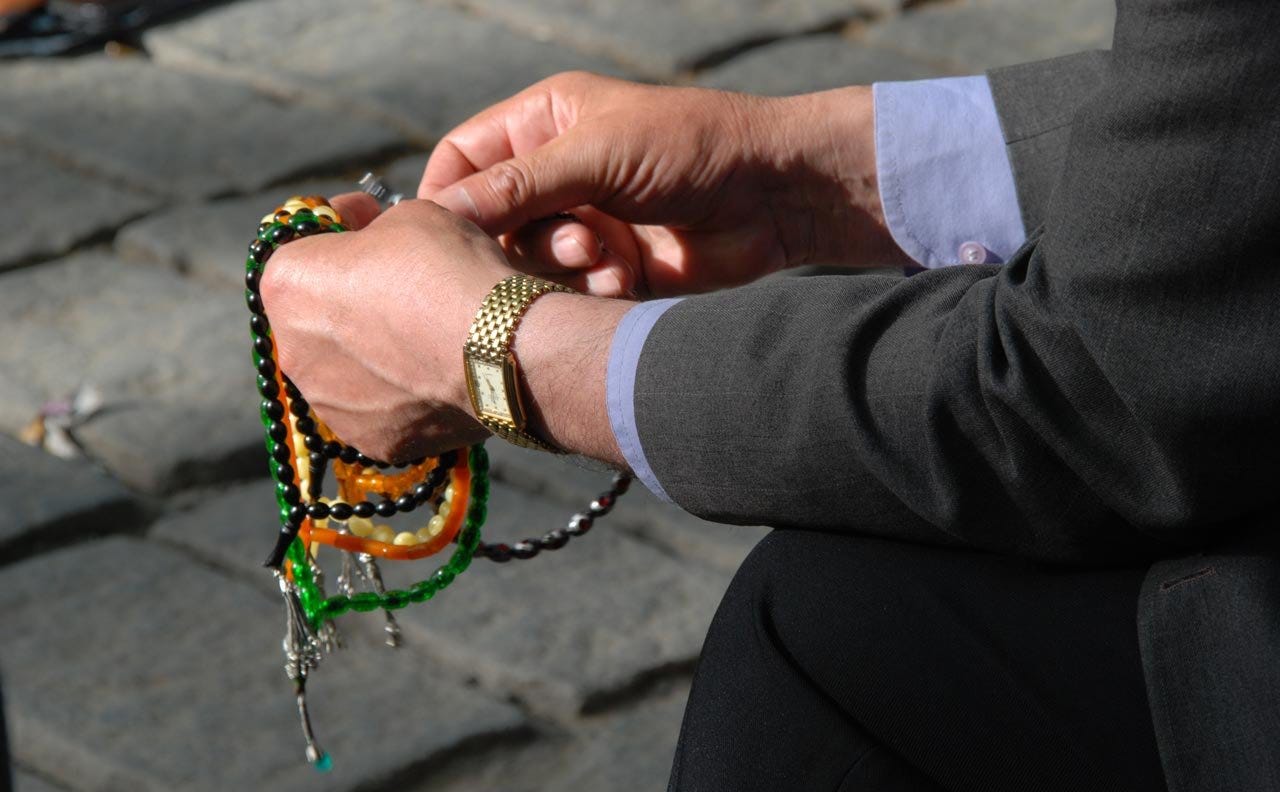
When he called me at our scheduled time several days later, I was pleasantly surprised by his chipper tone and convincing Irish lilt. Father O’Malley briefly introduced himself and told me this wasn’t really a Catholic confession, as he wasn’t “super orthodox.” He just wanted to know what had been “weighing heavy on my heart” recently. Much like my childhood memories of real confession, my mind went blank and I forgot the few “sins” I was prepared to share. I mumbled something about feeling guilty about my carbon footprint and eating meat, even though I know how bad it is for the environment, and he shared some of his own thoughts about climate change and a few personal anecdotes about recycling.
When he finished, there was a long pause while I waited for him to take charge, tell me a story, or otherwise provide direction about how this experience was supposed to go. Instead, after about ten seconds, he asked “So… what else is weighing heavily on your heart?” I gave him another vague confession about wanting to communicate more often with family out of state. He responded with a quote from the Buddha and said, “Can I ask you an astrological question? Are you a Sagittarius?” Two strikes against the first (and God’s favorite) commandment: “Thou shalt have no other gods before me.” To my later quandaries, Father O’Malley suggested meditation instead of Hail Marys (a popular form of penance ordered by priests during Confession), further taking me out of the experience.
Get Cheyenne Ligon’s stories in your inbox
Join Medium for free to get updates from this writer.
SubscribeSubscribe
When I attempted to let Father O’Malley steer the experience, either by sitting silent or asking questions of him, he pushed me to confess something new he could bounce ideas off of, or, when forced to elaborate on his backstory, he floundered on basic knowledge of Catholicism and the priesthood. I am the first to admit that I am not an expert on the Catholic religion, but I do know that priests are educated at a seminary (referred to during The Confessional as “priest school”) and that students of a seminary are called “seminarians” (“priest …mates”). Father O’Malley apparently did not.
Despite his unorthodox approach to the sacrament, and his lack of basic knowledge, I genuinely liked the character of Father O’Malley. He was funny, kind, and friendly, and offered some good feedback. Between Guinness-induced hiccups we discussed Black Mirror, complicated relationships with parents, getting back to nature, the modern addiction to technology, the horror of office jobs, and more. Talking to him felt like talking to an old friend, or a decent therapist. But that’s the issue: I never felt like I was talking to a priest. Instead, I felt like I was talking to a warm-hearted and slightly befuddled improv actor with absolutely no script to go off of, no clear instructions on what his role or goal was, and a backstory full of holes that he preferred not to examine too closely.
After our thirty minutes were up and the call ended, I tried to understand where the experience went wrong. I looked at Living Lucid Creative’s website and re-read the description of The Confessional. “Our priests are standing by to hear all of your wildest confessions,” the site reads. “Our priests are here to take your confessions and deliver messages of humor with perhaps a sprinkling for [sic] hope.” I wondered if I messed up the experience by not preparing something fictional and wild to confess. But, if that’s what I was supposed to do, it was unclear, and Father O’Malley did not guide me towards disclosing a juicy confession. Thus, The Confessional is either a live action roleplaying game (LARP) that is not clearly marked as a LARP, or it is a meandering, slap-dash phone experience that isn’t quite sure what its own purpose is. Though I have no way of knowing what the creators intended, my money is on the latter.
This is my main criticism of The Confessional: it’s hastily-made and pointless. The highlight for me was chatting with Father O’Malley, but one pleasant chat does not an immersive experience make. There seems to be no script to speak of. The experience offers no meaningful commentary on the current pandemic. And The Confessional fails to deliver humor beyond vague sex jokes and offensive stereotypes which aim to shock or titillate. While I believe almost anything can be funny in the right context or told by the right person in the right context (like Pete Davidson’s famous “9/11 joke” during the Comedy Central roast of Justin Beiber), The Confessional’s reliance on played-out Catholic stereotypes comes across as unfunny and uneducated. When mixed with the actor’s lack of basic knowledge, I think this becomes unacceptable.
The Catholic Church has a well-known history of widespread corruption and abuse; I think it would make a fascinating subject for an immersive experience. But touchy subjects, especially when there are real victims, must be approached with care and thorough research. An excellent example of handling delicate subject matter with respect is Candle House Collective’s phone-based experience Collect Call, which explores the American death penalty in a way that is compassionate, cathartic, and — at least for me — mind-changing. It was a transformative experience that I still think about often. The Confessional had the potential to do the same by examining some of the most important questions about Catholicism through the lens of Confession. The Catholic tradition of confessing sins to God through a priest as an intermediary is complex and relies on a potent mix of shame, honor, tradition, duty, forgiveness, and emotional catharsis. It also creates an extremely disparate power structure between priests and believers — where priests alone have the power to offer absolution and thus an eternity in Hell — that is worthy of exploration. But The Confessional doesn’t seem to be interested in asking real questions of the Catholic Church or the power of priests and how it is abused. It merely uses Catholicism to flavor an otherwise bland, purposeless experience.
As the pandemic forces the world to stay at home, theatre-makers must think of creative new ways to share their art and ideas. Some of these remote experiences, like Collect Call, are masterful examples of remote immersive theatre. The Confessional was not. Perhaps I’m disappointed because I think it had so much potential. I would love to see a more thought-out, well-researched version of this remounted by Living Lucid Creative. Catholicism isn’t a mystery cult — there’s plenty of information about it online, and there’s no excuse for lacking in foundational knowledge. As for the show’s character stereotypes, they are based in a sad reality and are also worth exploring on their own, as opposed to being used for shock value and childish giggles. All in all, I wanted The Confessional to say something meaningful, but, as it turned out, it was me who had to do the talking.
The Confessional is an ongoing experience; tickets are $30.
NoPro is a labor of love made possible by our generous Patreon backers. Join them today!
In addition to the No Proscenium web site, our podcast, and our newsletters, you can find NoPro on Twitter, Facebook, YouTube, Instagram, in the Facebook community Everything Immersive, and on our Slack forum.
Office facilities provided by Thymele Arts, in Los Angeles, CA.


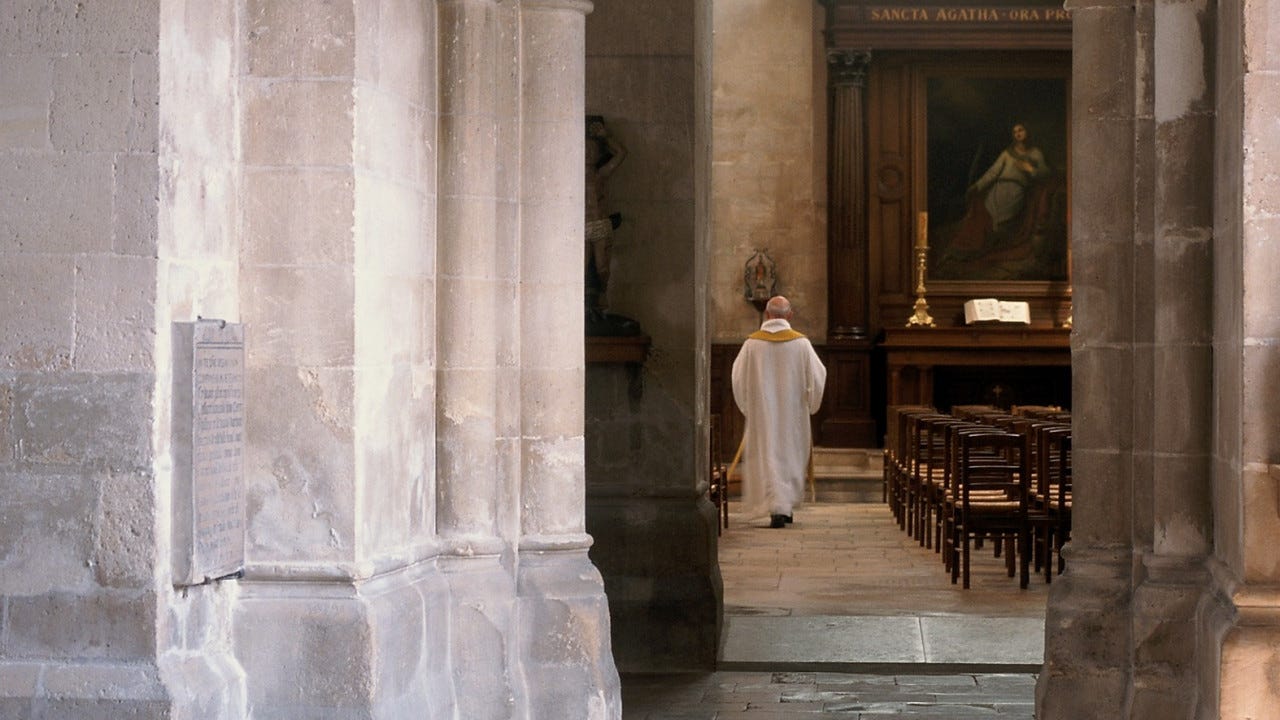


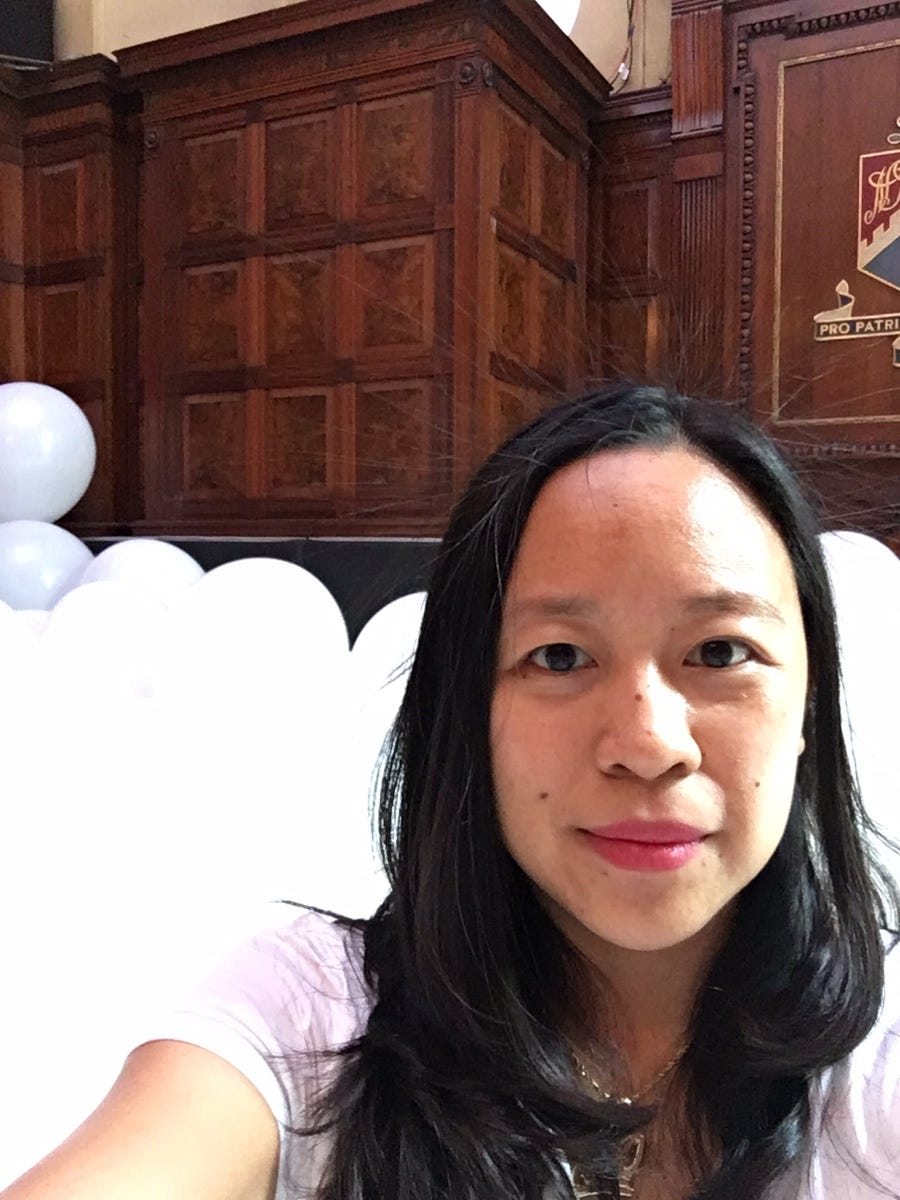
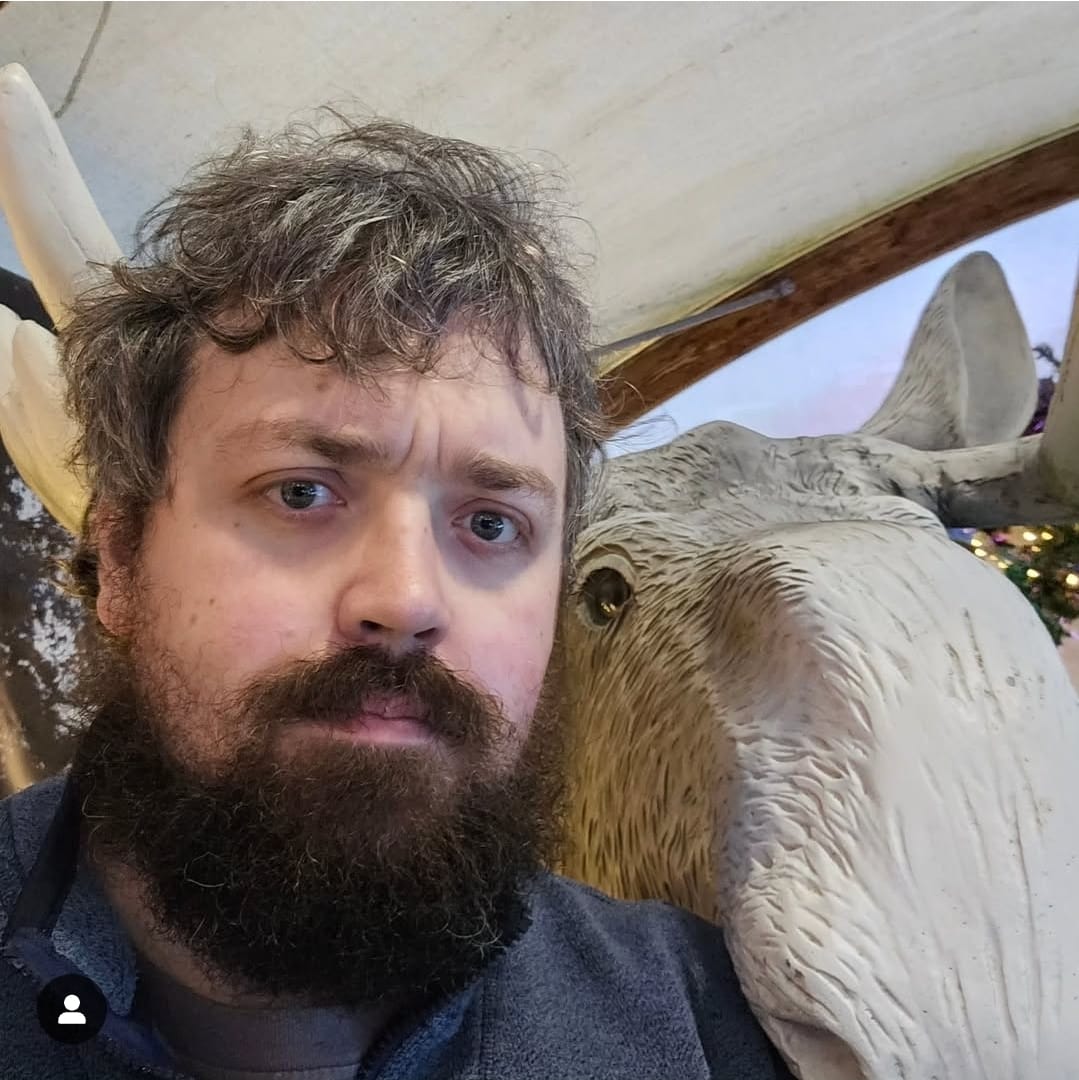



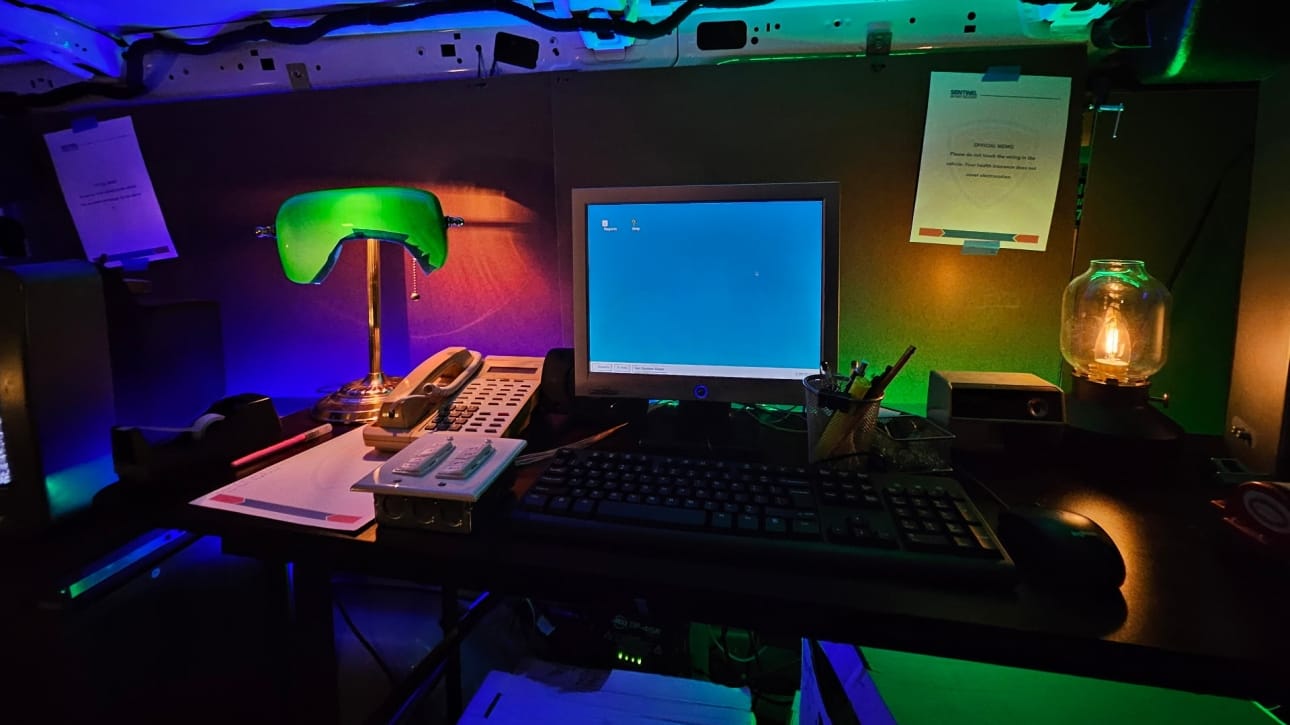
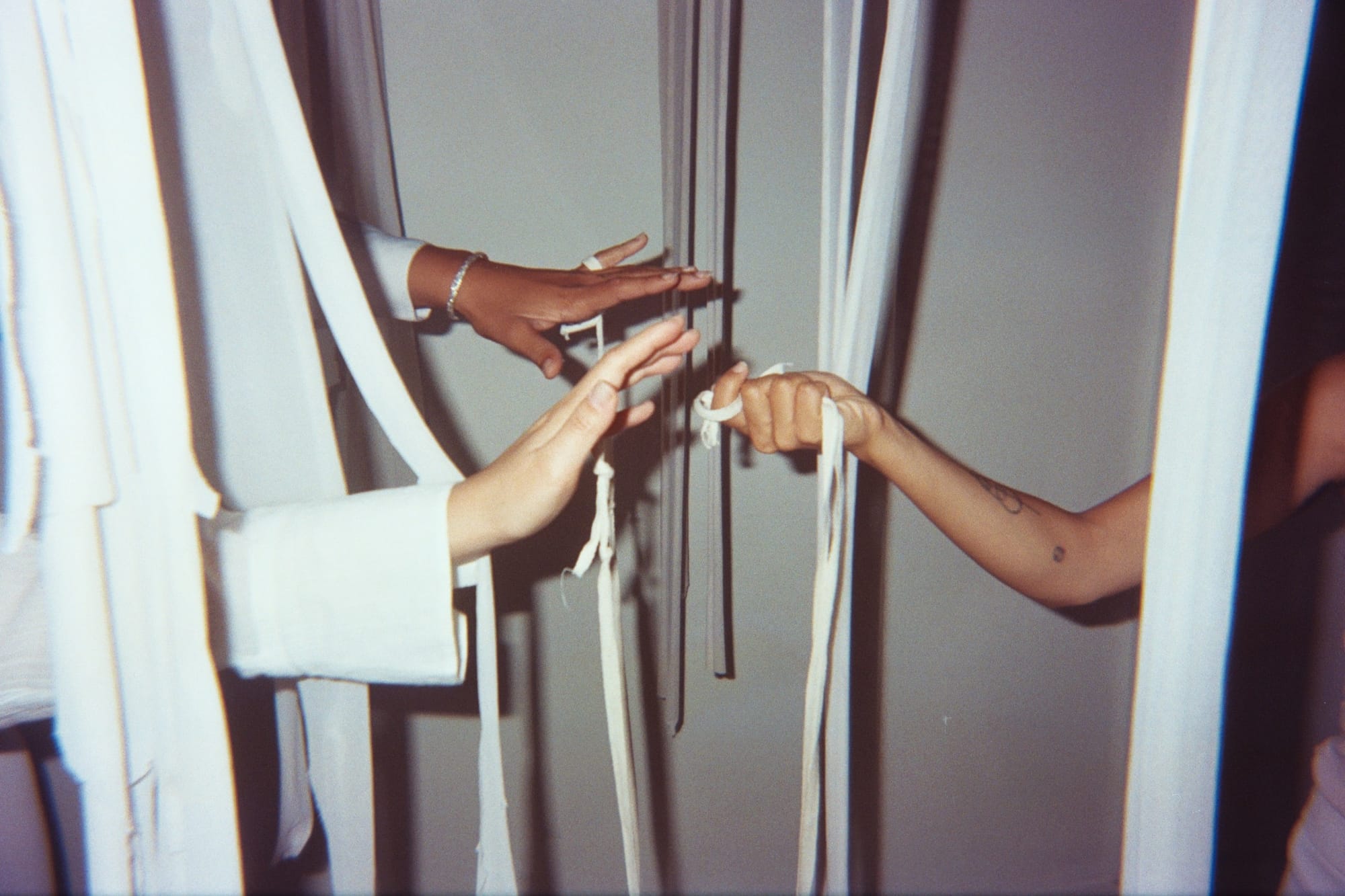

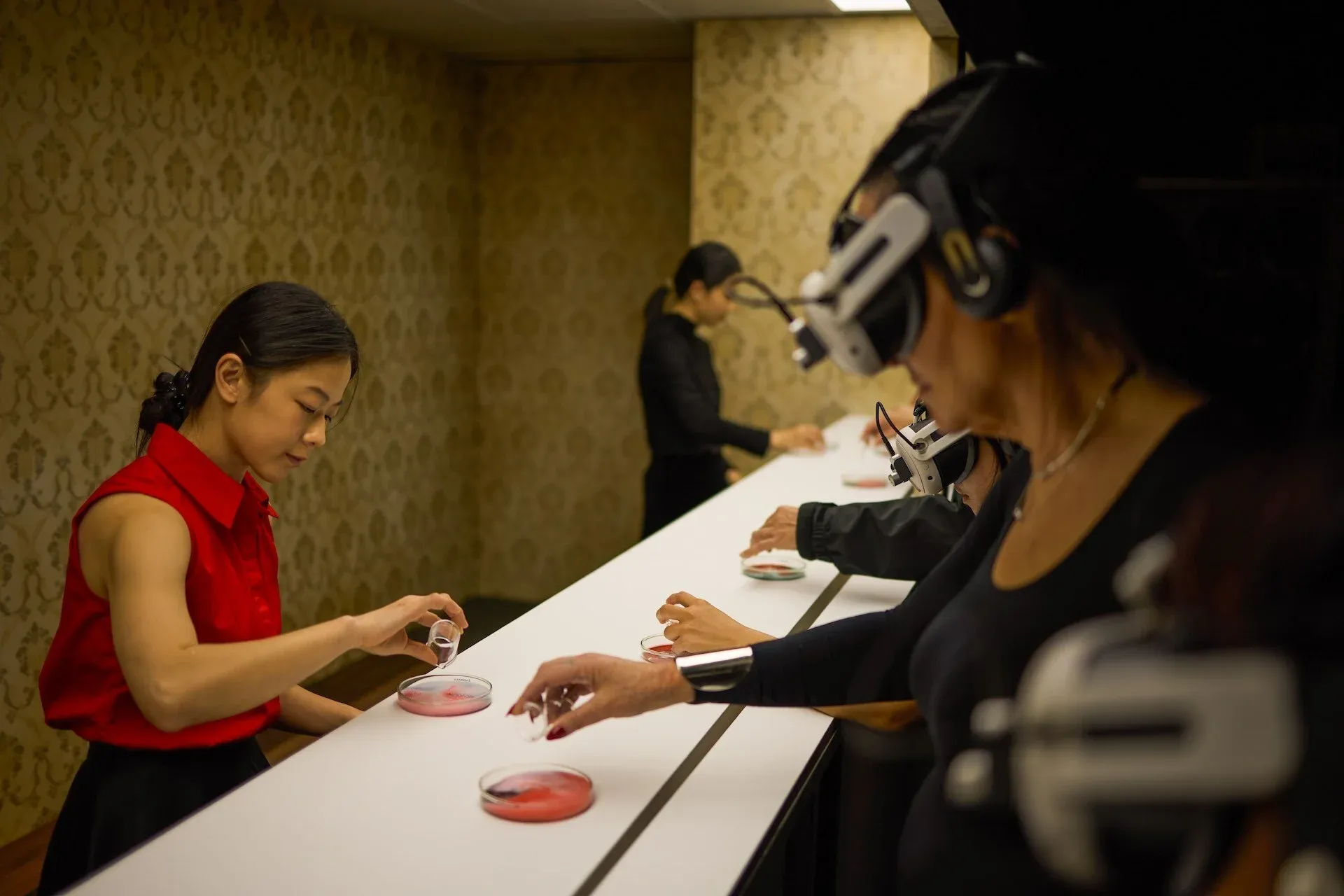




Discussion